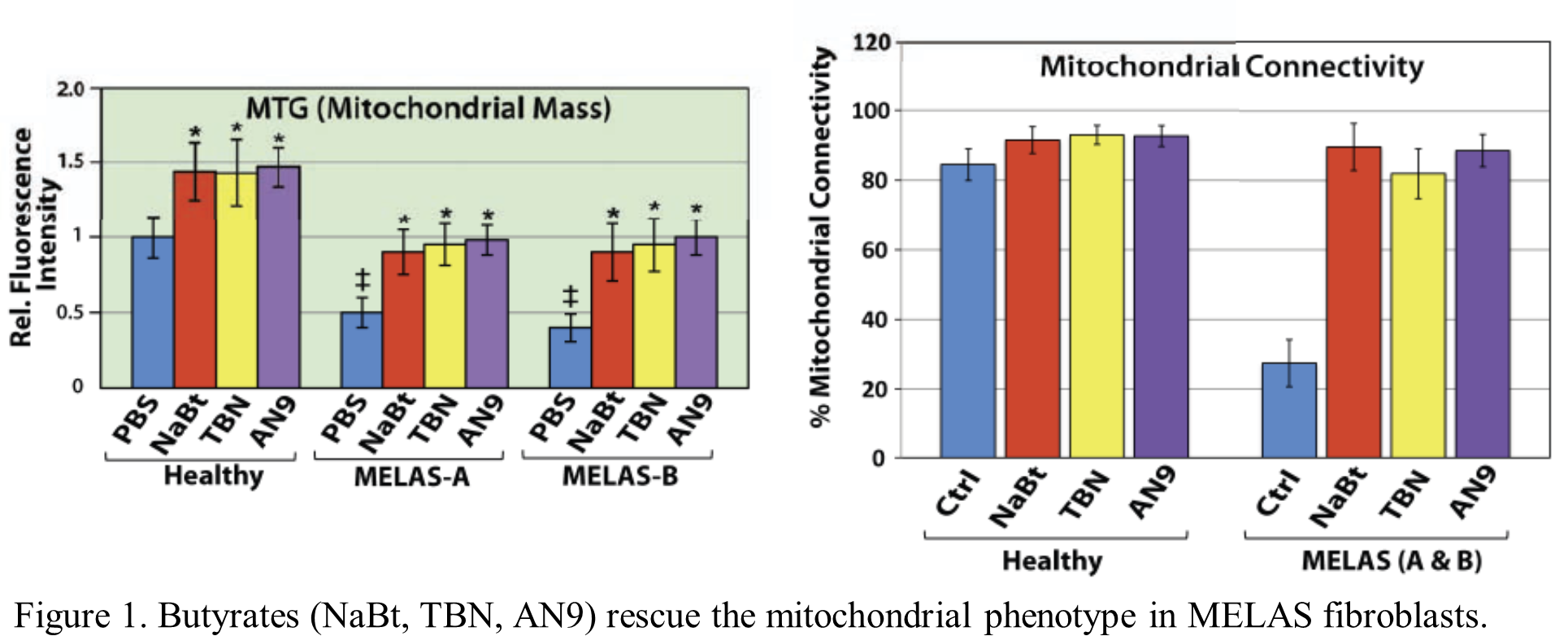Mitochondrial respiratory disorders (MRDs) are incurable progressive degenerative diseases resulting from malfunction of mitochondria, which are responsible to generate ATP via the oxidative phosphorylation (OXPHOS) system. One of the most frequent pediatric MRDs is MELAS (Mitochondrial Encephalopathy with Lactic Acidosis and Stroke-like episodes). Patients exhibit clinical symptoms that include encephalopathy, seizures, stroke-like episodes, dementia, ataxia, migraine-like headaches, cognitive impairment, chronic lactic acidosis, cyclical vomiting, hypertrophic cardiomyopathy, myopathy, blindness, deafness, and diabetes. Currently, no therapeutic options are available to these patients, resulting in significant disability, a poor prognosis, and premature death.
As short chain fatty acids, butyrates can freely diffuse in mitochondria to boost ATP output by bypassing defective complexes of the OXPHOS system. Since butyrates are also histone deacetylase inhibitors (HDACis), they function in the nucleus to activate expression of genes related to mitochondrial biogenesis. These dual actions increase mitochondrial biogenesis and ATP levels.
In 2023, GW received approval from the Food & Drug Administration for our Investigational New Drug application to initiate a clinical trial for this treatment.

Publication:
Epigenetic modifiers promote mitochondrial biogenesis and oxidative metabolism leading to enhanced differentiation of neuroprogenitor cells.
Uittenbogaard M, Brantner CA, Chiaramello A. Cell Death Dis. 2018 Mar 2;9(3):360. doi: 10.1038/s41419-018-0396-1.
Application:
- Treatment of mitochondrial diseases
Advantages:
- Increases mitochondrial biogenesis
- Increases mitochondrial connectivity
- Enhances oxidative phosphorylation pathway for ATP production